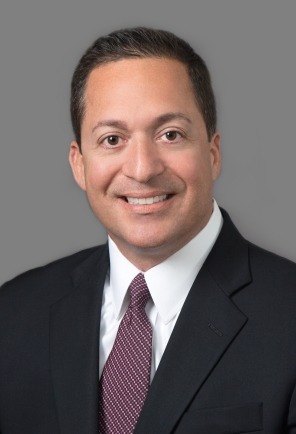A Heavyweight Bout Over Use of Contractors
2015-Issue 18—In case you have missed the financial headlines, there is an ongoing heavyweight bout in the federal tax controversy arena that we should all be watching with interest. It may not have the aura of the recent Floyd Mayweather Jr. versus Manny Pacquiao bout in Las Vegas, but this one could shape the manner in which the IRS deals with certain situations in this purported era of government resource constraints. In one corner sits Microsoft Corp., the technology giant, defending its intercompany transfer pricing practices. In the other corner sits the IRS and a private commercial litigation law firm. That is right — a private law firm. The IRS has partnered with a reputable law firm to scuffle with Microsoft before the U.S. District Court in a contentious dispute that has billions of tax dollars at stake.
Tale of the Tape
By all accounts, this government-private sector partnership was made possible by the issuance of a new treasury regulation just weeks after the IRS engaged the law firm to assist with the Microsoft case. The IRS claims that the purpose for issuing the regulation was to “clarify” that outside parties could participate in the interrogation process and other key tasks undertaken in IRS examinations. Although some observers have expressed concern that this novel type of arrangement could threaten longstanding internal controls established by Congress within the statute to protect the relationship between the IRS and taxpayers, the IRS believes its interpretation of the statute (via the new regulation) is spot on and well within powers granted by Congress.
Microsoft thinks otherwise and has counterpunched by filing a motion with the court on April 23, 2015, that requests (1) a limited evidentiary hearing to demonstrate an IRS abuse of power and block the summons enforcement action (of which key aspects would be carried out by the law firm) and (2) limited document discovery to make available certain documents exchanged between the IRS and the law firm (previously requested by Microsoft under the Freedom of Information Act) that the IRS has yet to produce.
The Hype
It is well known that the IRS has relied on outside resources to assist in administering its role as enforcer. This authority is statutorily granted to the agency by Section 7602. However, this practice has historically been limited to a supportive role for resolving discrete issues already identified by the IRS in the examination process (e.g., expert witness testimony, valuations). In light of our current fiscal environment, perhaps one could rationalize the IRS’s latest maneuver as a harmless extension of established practices to preserve our collective interests in promoting efficient tax administration and maintaining a level playing field such that neither side can game the system. If expertise in the private sector is necessary to achieve this goal, then so be it. However, as ideal as that objective may be, the question remains whether the end justifies the means.
Many outside observers have reportedly reacted with puzzlement and curiosity. There was something about the contract’s price tag, the time proximity between the hiring and the regulation issuance, and the “clarifying” nature of the regulation that has not sat so well.
More importantly, a technical debate has begun to brew over the legitimacy of the regulation. Microsoft believes the IRS has abused its power by issuing a regulation in direct conflict with the statute. The statute provides that the term “delegate” is limited to an officer, employee or agency of the Treasury Department authorized by the Secretary of the Treasury (Section 7701(a)(12)(A)). The expanded role for outside contractors was made possible by an interpretation of Section 7602(a), which governs the examination of books and witnesses (including administrative summons). The new regulation generally states that when the IRS issues a summons to provide information, any person hired and authorized by the IRS to perform certain services that facilitate tax administration (as described in Section 6103(n)) may (i) receive the summoned information and (ii) “fully participate” in the process of interviewing a person providing testimony under oath in the presence and under the guidance of IRS personnel. For this purpose, fully participating in includes, but is not limited to, the following:
- Receipt, review and use of summoned books, papers, records or other data;
- Being present during summons interviews;
- Questioning the person providing testimony under oath; and
- Asking a summoned person’s representative to clarify an objection or assertion of privilege.
Those expressing concern about the new regulation claim that the above tasks are inherently governmental (thereby rightly restricted to IRS employees) and cannot be delegated to third persons under existing law. This view was shared last month by Finance Committee Chairman Orrin Hatch (R-Utah) in a letter to IRS Commissioner John Koskinen. The Senator requested in the letter that the IRS (1) immediately halt the use of the private contractors for both the examination of records and the taking of sworn testimony, (2) provide the legal reasoning supporting its actions and (3) explain its intentions for adopting this approach to handle future cases.
Considerations
The purpose of this edition of Tax Advisor Weekly is not to debate which tasks are or are not inherently governmental but rather to raise awareness of an important event going on around us and the potential implications that could affect us as stakeholders. It is in our collective interests that the IRS operates with transparency (a popular theme in today’s U.S. politics) and navigates change in a manner that garners and maintains the trust of the taxpayers. Thus, the “how” and the “why” are key areas for us to think about. We know that the subject regulation was issued without notification or opportunity for public comment, leaving the battle to occur in the courts and/or through intervention by Congress to redefine the lines.
We can also think about whether it was truly necessary for the IRS to “bulk up” in this manner. Like companies in the private sector, the IRS has to compete in the marketplace to attract and retain the best resources on some sort of budget. We do our best with what we have. This makes for a somewhat adversarial relationship as we fight over ideas and interpretations, but it certainly keeps things interesting. Nonetheless, in this match of protecting our respective interests, the government has arguably improved its already better hand by virtue of Congress’s role with writing the laws, the IRS’s role with enforcing the laws (which includes interpreting the laws via treasury regulations) and the burden of proof that is placed upon taxpayers.
So while this bout plays out, there are lots of questions and few answers that interested parties can think about as this bout moves to the next round.
- Why would the IRS sign a reportedly lucrative deal with a private contractor at a time when the broader message to the taxpayers is one of strict budget cuts?
- Does the cost versus benefits associated with this high-stakes case and its likely precedential value justify such a novel approach?
- Was this action intended to put taxpayers on notice that the IRS will take bold and unprecedented moves when it comes to the enforcement of sound transfer pricing practices (a current hot topic among developed and under-developed economies competing for tax revenues)?
- The IRS has given assurances that core functions of the government will remain within its purview and control and not be delegated to outside parties. Is the meaning of core function subject to change depending on the needs of the IRS? Does the regulation create a slippery slope that will pave the way for use in other situations where the IRS believes it lacks necessary resources?
- The IRS has purportedly hired the private contractor to fill an expertise gap within the IRS. If this is the case, how will the IRS assure taxpayers that the contractor will be riding “shot gun” with the IRS through the examination process and not vice versa?
- Will the IRS’s actions lay the groundwork for hiring formidable “dream teams” similar to what occurs in the private sector? If so, how might this alter the relationship dynamic between the IRS and taxpayers?
Alvarez & Marsal Taxand Says:
The interest in this heavyweight bout continues to escalate, and it looks like it will get personal quickly. If left sustained, this bold move by the IRS could trigger a power shift whose consequences may not be known for some time. We are continually reminded, with each exchange of punch and counterpunch, about the challenges each party faces to protect its vital interests while maintaining a healthy respect and appreciation for our system of checks and balances. Stay tuned… this one may go the distance.
Disclaimer
The information contained herein is of a general nature and based on authorities that are subject to change. Readers are reminded that they should not consider this publication to be a recommendation to undertake any tax position, nor consider the information contained herein to be complete. Before any item or treatment is reported or excluded from reporting on tax returns, financial statements or any other document, for any reason, readers should thoroughly evaluate their specific facts and circumstances, and obtain the advice and assistance of qualified tax advisors. The information reported in this publication may not continue to apply to a reader's situation as a result of changing laws and associated authoritative literature, and readers are reminded to consult with their tax or other professional advisors before determining if any information contained herein remains applicable to their facts and circumstances.
About Alvarez & Marsal Taxand
Alvarez & Marsal Taxand, an affiliate of Alvarez & Marsal (A&M), a leading global professional services firm, is an independent tax group made up of experienced tax professionals dedicated to providing customized tax advice to clients and investors across a broad range of industries. Its professionals extend A&M's commitment to offering clients a choice in advisors who are free from audit-based conflicts of interest, and bring an unyielding commitment to delivering responsive client service. A&M Taxand has offices in major metropolitan markets throughout the US., and serves the U.K. from its base in London.Alvarez & Marsal Taxand is a founder of Taxand, the world's largest independent tax organization, which provides high quality, integrated tax advice worldwide. Taxand professionals, including almost 400 partners and more than 2,000 advisors in nearly 50 countries, grasp both the fine points of tax and the broader strategic implications, helping you mitigate risk, manage your tax burden and drive the performance of your business.
To learn more, visit www.alvarezandmarsal.com or www.taxand.com






